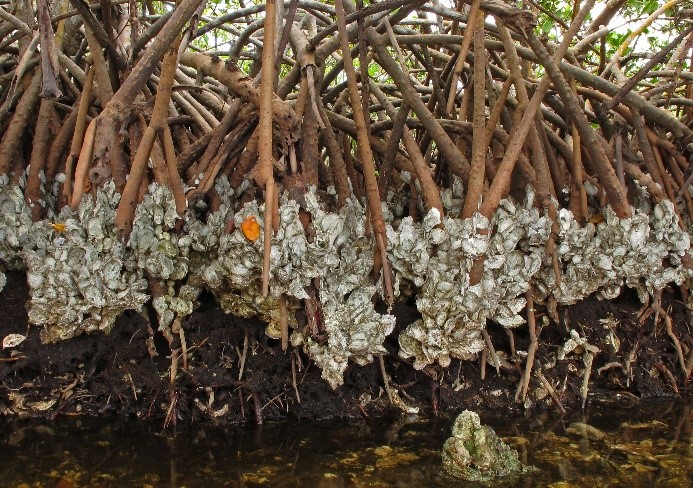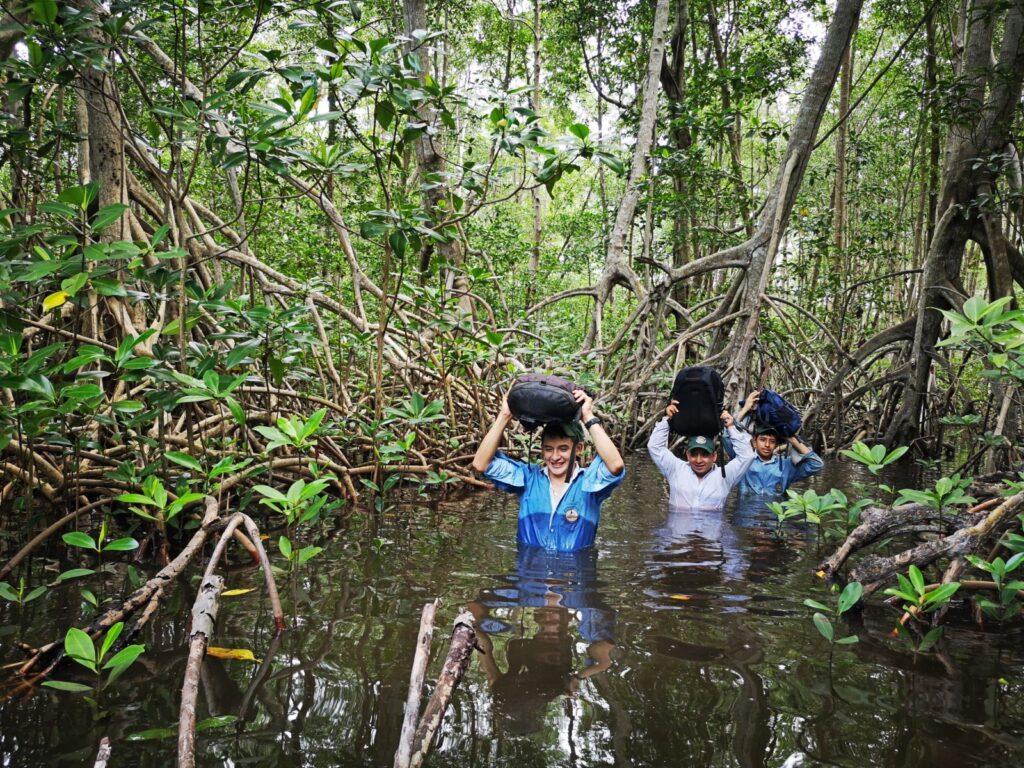This study addresses the marine restoration of 65Km2 of mangrove forests, on the Colombian Atlantic coast. These ecosystems are very complex with multiple ecological functions and high economic value. They are also ecosystems that are subject to various negative impacts, which is causing their disappearance at an annual rate that ranges between 5 and 15%. One of the most negative impacts is generated by the spillage of construction waste with its consequent damaging effect on several of its subsystems: trees, associated fauna, microorganisms (aerobic and anaerobic), soil and water.
This study offers a discussion of the most up-to-date results on bioremediation with reforestation with red mangrove trees (Rhizophora mangle) and mangrove oysters (Crassostrea rhizophorae) pollution of mangroves by spills of construction waste from the increase of infrastructure for tourism in the coasts of the departments of Sucre and Cordoba. Likewise, we review and discuss the various bioremediation, phytoremediation and restoration strategies that allow us to provide a response in the short and medium term.
Most of the coasts contaminated with pollution residue, generate acidic pH, bleach corals, and the sediment liquids marine biodiversity. In order to accelerate the restoration process, biostimulation (addition of nutrients or degradation-stimulating compounds) and bioaugmentation (addition of microbial strains with special attributes to degrade pollutants) have been investigated. Another limiting factor for the degradation of construction waste to occur in mangrove sediments is the lack of oxygen. The most current information indicates that the biostimulation strategy, complemented with aeration, is one of the best treatment options.
Keywords: construction waste, biostimulation, bioaugmentation, natural attenuation, biodegradation, tourism, mangroves, oysters.




